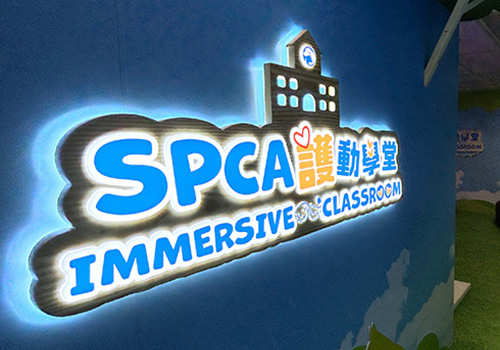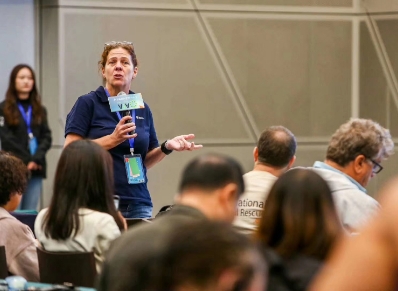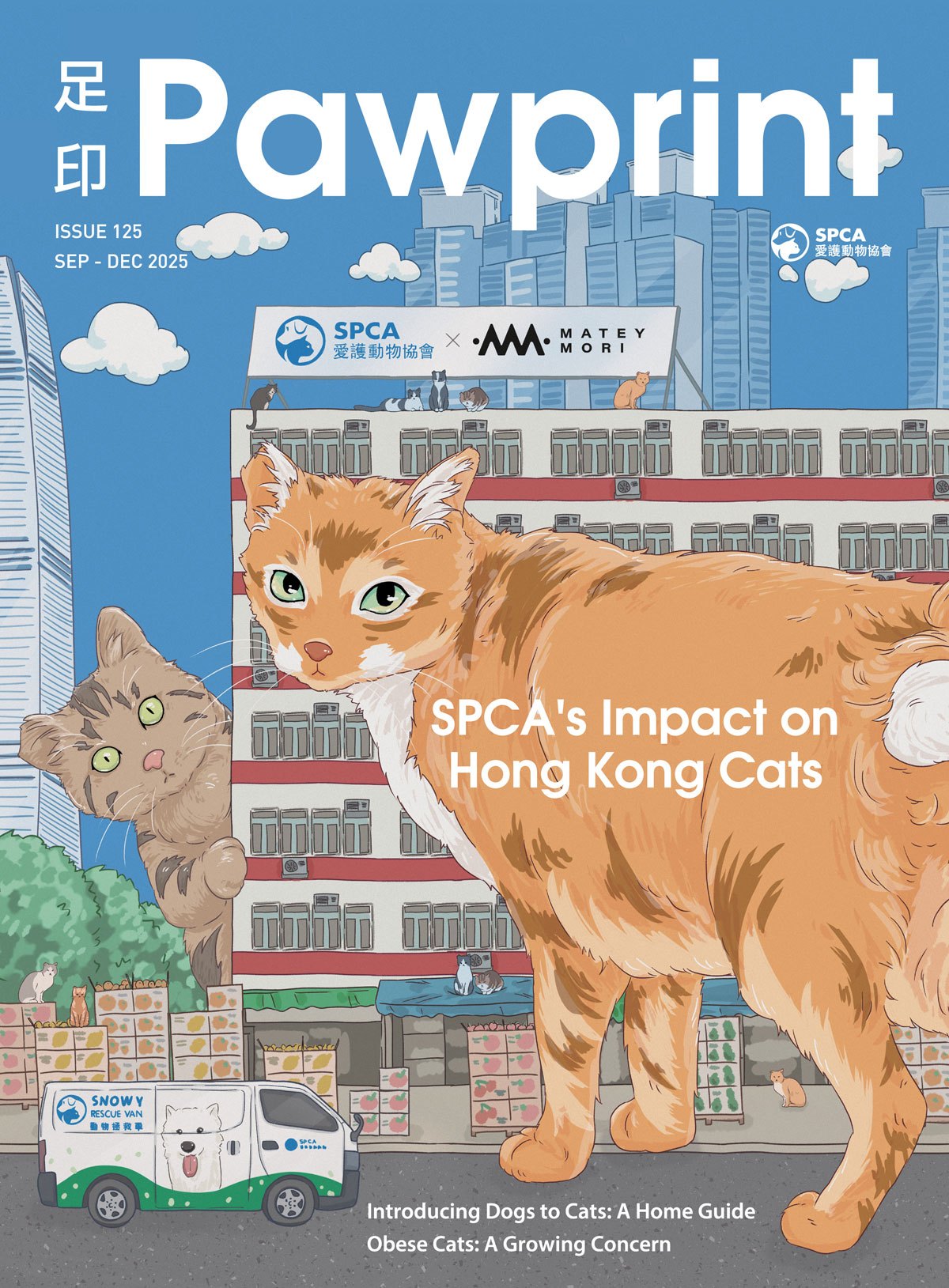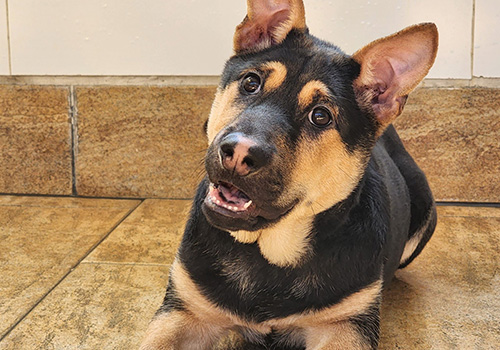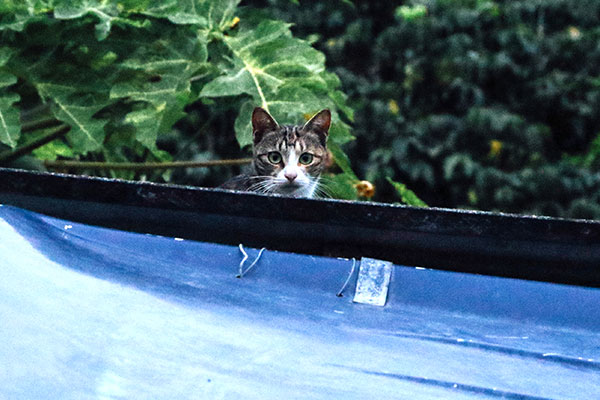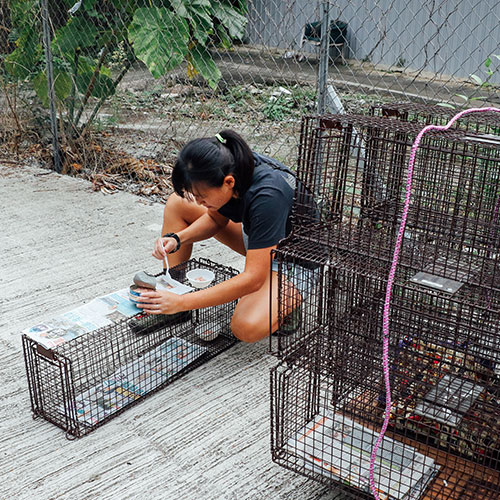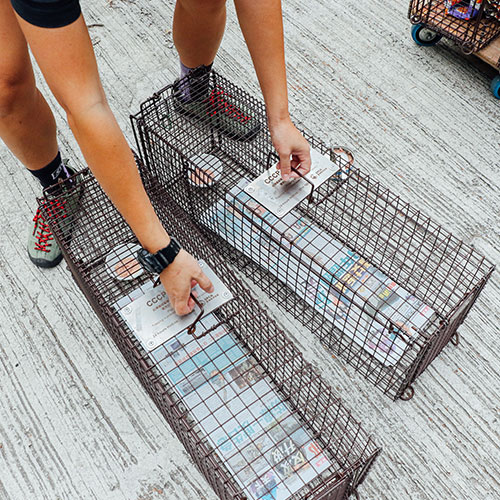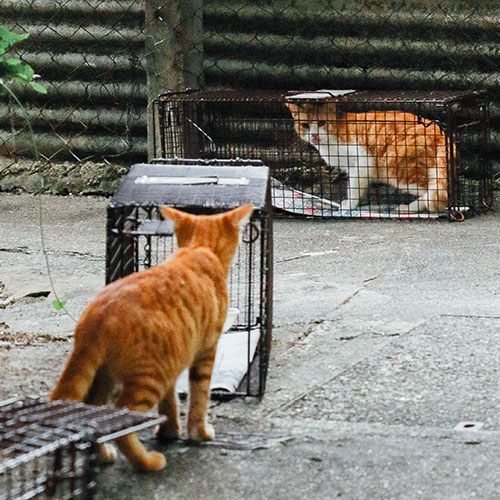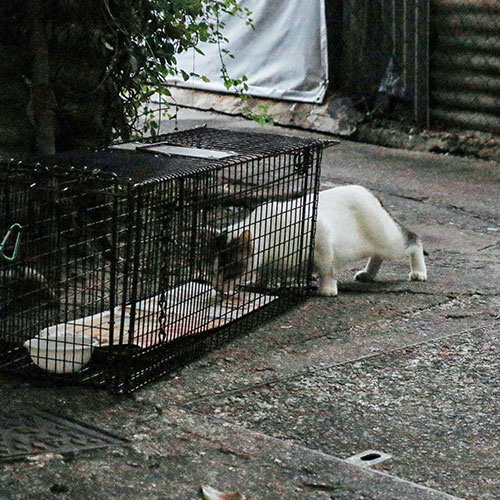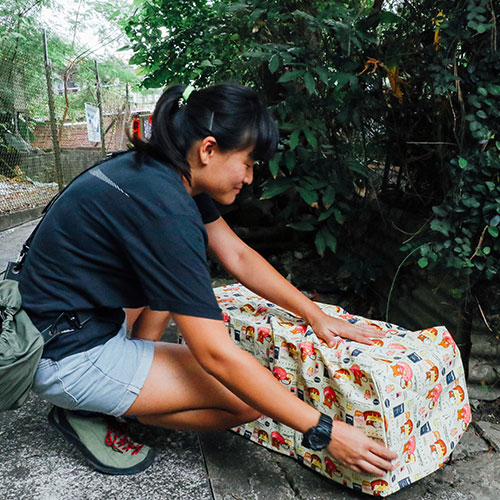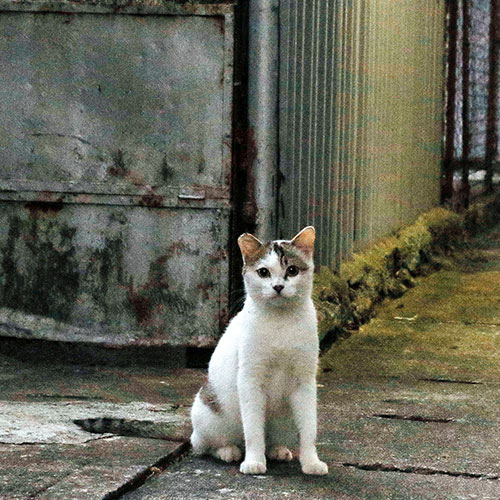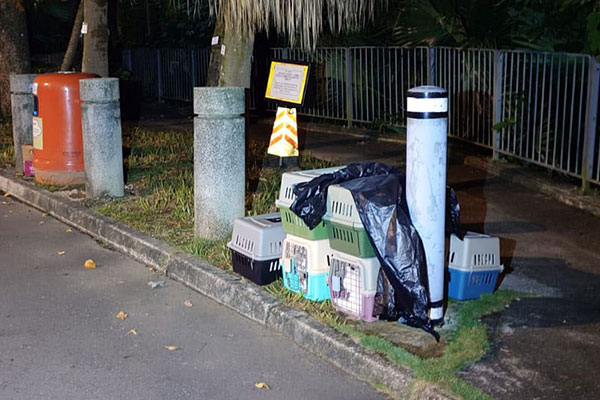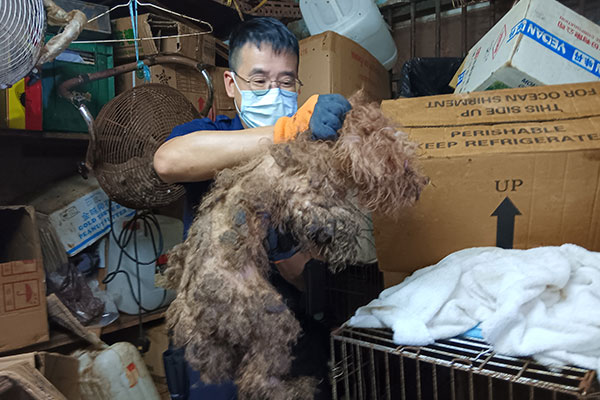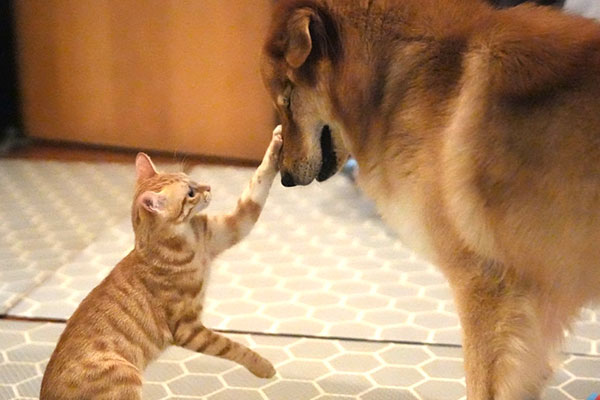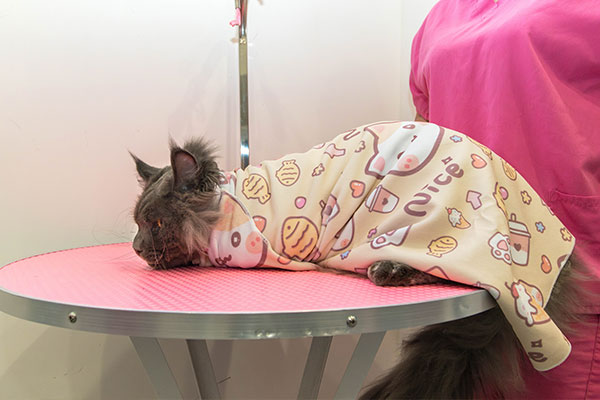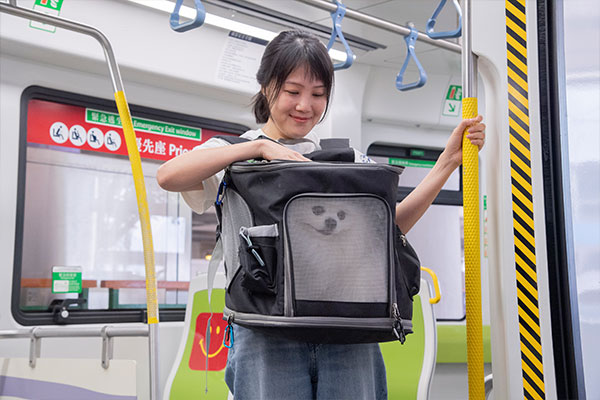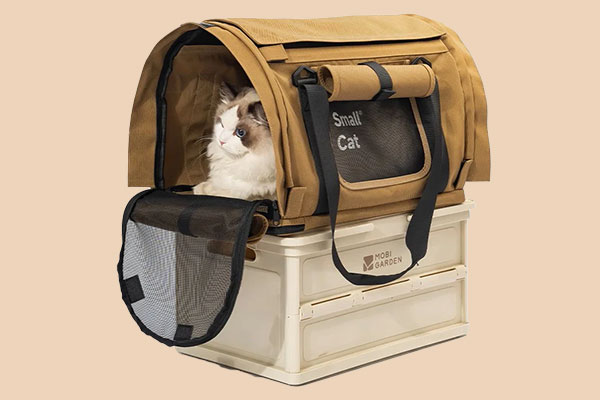How the SPCA Helps Cats in Hong Kong
Recently the number of cat adoptions has far exceeded those of their canine counterparts and the situation for street cats has improved thanks to programmes like the SPCA’s Cat Care Colony Programme (CCCP) which continues to help the unowned feline population in Hong Kong. But things weren’t always so seamless, and there was a time in Hong Kong when the abandonment of unwanted cats led to a boom in the street cat population.
With the SPCA and relevant government departments overwhelmed with the increase in cat abandonment and general lack of awareness of proper cat care, no desexing and the high risk of rabies outbreaks back in the 1950’s to 60’s, Hong Kong was faced with difficult decisions, including the euthanasia of large numbers of unwanted and abandoned cats.
This was a challenging time for all, and the SPCA took the lead and made significant strides in introducing more humane and sustainable animal welfare methods to help reduce abandonment, the birth of unwanted litters of kittens and consequently reduce the euthanasia rate of cats in Hong Kong.
One of the most effective methods being the…
Cat Colony Care Programme (CCCP)
The introduction of the CCCP, a Trap-Neuter-Return (TNR) programme, in August 2000 has played a very significant role in improving the welfare of street cats in Hong Kong.
Previously, street cats were trapped in a cycle of reproduction, disease, suffering and an early death – those that managed to survive their first few months had a life expectancy of two to four years. However, thanks to the CCCP, this cycle has now been broken – fewer kittens are born, and the street cats themselves are healthier in general with an increased life span. In addition, the euthanasia rate of cats is down by more than 90% since the programme’s inception!
This is all thanks to the many volunteer carers and helpers of the CCCP, over the last 25 years!
Total number of cats sterilised:
>86,000
Total Cat Colonies:
>2,200
Active registered volunteer carers:
>1,298
Active registered helpers:
480
A street cat’s life expectancy has increased from
2-4 years to 10 years
However, the SPCA’s assistance with Hong Kong’s cat population doesn’t stop there, and there are many aspects of the organisation which aids our feline friends.
Education
As cat abandonment was such a big issue and largely contributed to the boom in stray cats back in the 50’s and 60’s, the SPCA regularly hosts a number of educational talks and workshops to educate the public on good animal welfare practises and responsible cat ownership. From online courses to school talks and educational camps to tours, the SPCA provides a range of activities to cater to the public.
In August 2025, the SPCA launched their first ever Feline First Aid Course to help educate cat owners on how to provide immediate care to their cat in an emergency. To learn more about the SPCA’s pet care courses, click here
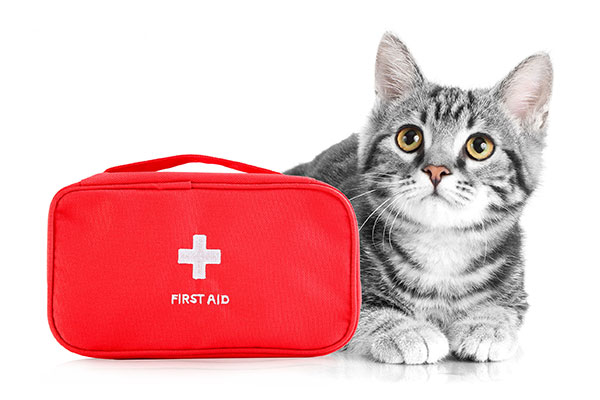
Animal Rescue
The SPCA’s Inspectorate provides round-the-clock animal rescue services, seven days a week, for free.
Cats made up 30% of our rescue cases last year!
Between 2024 to 2025, 4,533 animals were rescued or handled by the inspectors. Of these animals, 1,363 were cats that were rescued from either danger, abandonment, abuse or neglect or were just unable to stay with their owners anymore.
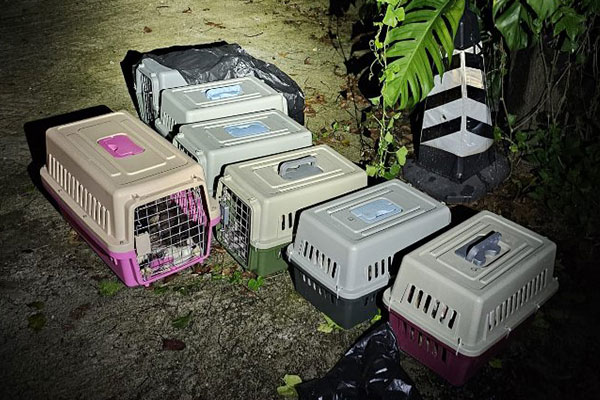
Sai Kung abandoned cat case
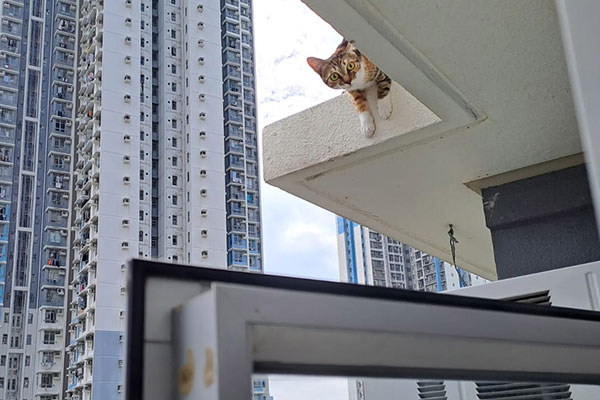
Flying cats
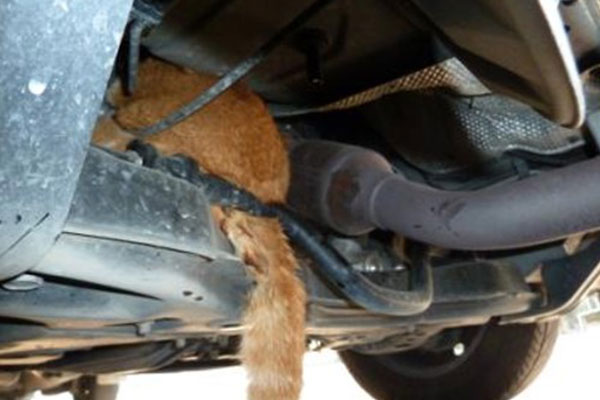
Cat stuck in car engine
Veterinary Services
The SPCA’s veterinary surgeons don’t just treat pets but also take care of stray and loosely owned animals, rescued by the inspectorate and/or other sources.
Between 2024 and 2025, the veterinary department performed 82,059 consultations – of which, 52% were cats.
Our veterinary surgeons are seeing a lot more breed-specific conditions, due to the fact pedigrees such as Ragdolls, Maine Coons, Exotic Shorthairs and British Shorthairs are becoming increasingly popular and the breeding of cats is sadly unregulated.
There has also been a noticeable increase in serious, life-threatening infectious diseases which are being spread faster by poor breeding conditions and unethical behaviour in the pet trade. This has increased in part due to the increase in smuggling from mainland China and the ability to buy cats on the Internet – another stark reminder to adopt, not shop – or if you want to buy visit the breeder and boycott the bad ones!
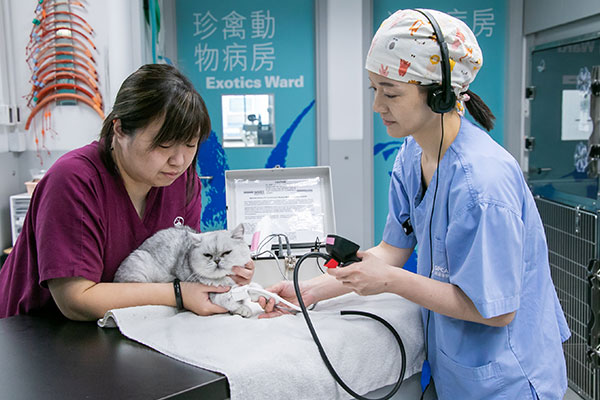
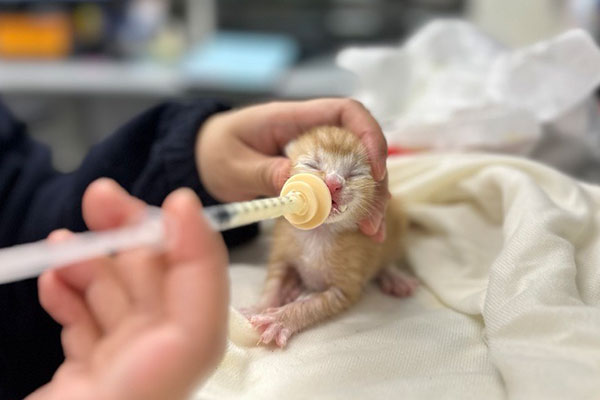
Foster Care
The SPCA has a Foster Parent Programme, which provides food, equipment and anything related to the veterinary care of our foster animals. Foster parents simply need to cover the cost of transporting their foster animals back to the SPCA for their progress checks.
Between 2024 to 2025, 638 animals benefited through the Foster Parent Programme.
73.8% of these animals were kittens who have since gone on to find loving, forever homes, thanks to the dedicated care of our foster parents.
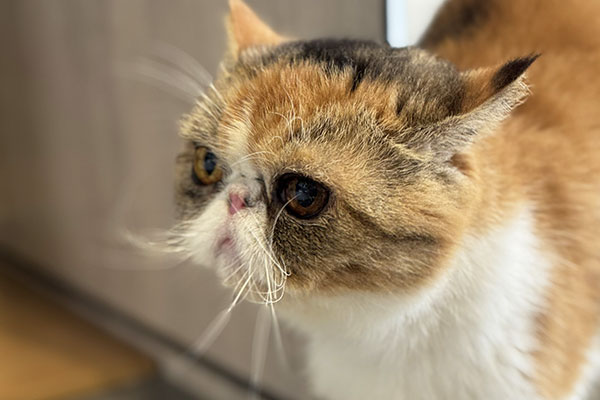
Adoption
Cat adoptions exceed any other form of animal adoptions at the SPCA. Of the 1,255 animals adopted between 2024 to 2025 , 62% of these adoptions were of cats!
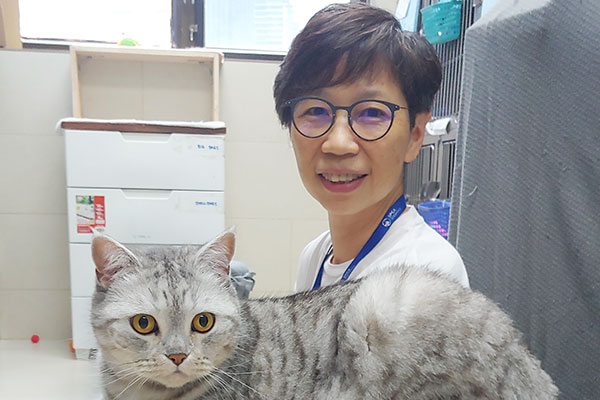
Cat Behaviour Consultation
To help these cats adapt to their new life and aid a smooth transition, the SPCA’s Senior Behavioural Support Technician, Lily Leung assists with behaviour assessments and behaviour modification advice in both dogs and cats. With certification in Feline Behaviour and Psychology as well as iCatCare Advanced Feline Behaviour, Lily has assisted many cats transition from life in our shelter to loving forever homes. Where previously only 10% of her consultations were cats, this has since jumped to 40%!
Learn more about Behaviour Consultation
How you can help the cat population in Hong Kong
Adopt, don’t shop!
By adopting, you help save two lives – your new companion animal, and the rescue animal that follows, as a result of space opening up at our centres.
If you cannot adopt, why not join our Foster Parent Programme?
Become a SPCA member
by becoming a member you help us give a bigger voice to animals and support our advocacy work.
In addition, as a member you get access and/or special discounts to the SPCA’s services such as veterinary care, grooming, Behavioural & Training, boarding and retail services. Furthermore, by supporting our services, you help the SPCA continue their animal welfare initiatives like the CCCP to help more animals in need.
Become a CCCP carer or volunteer!
The CCCP would not be possible without the help of our volunteer carers and helpers.
Donate!
The SPCA needs the public’s support and donations to do our vital work and continue to operate and carry out our animal welfare initiatives.
Get a Limited-Edition Cat Shopping Bag with Your Donation
Support the SPCA’s Cat Colony Care Programme (CCCP) with a one-off donation of HK$388 or donate HK$100 or more monthly to any of our programmes to receive this adorable, limited-edition cat shopping bag! Supplies are limited, don’t miss out! ^
Your donation helps us care for and protect Hong Kong’s street cats.
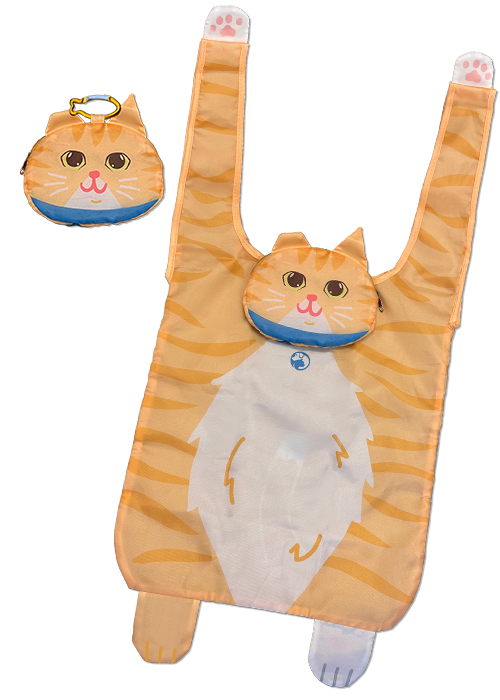
^ Photo is for reference only. Gifts are limited in quantity and will be given out on a first-come, first-served basis while stocks last.

